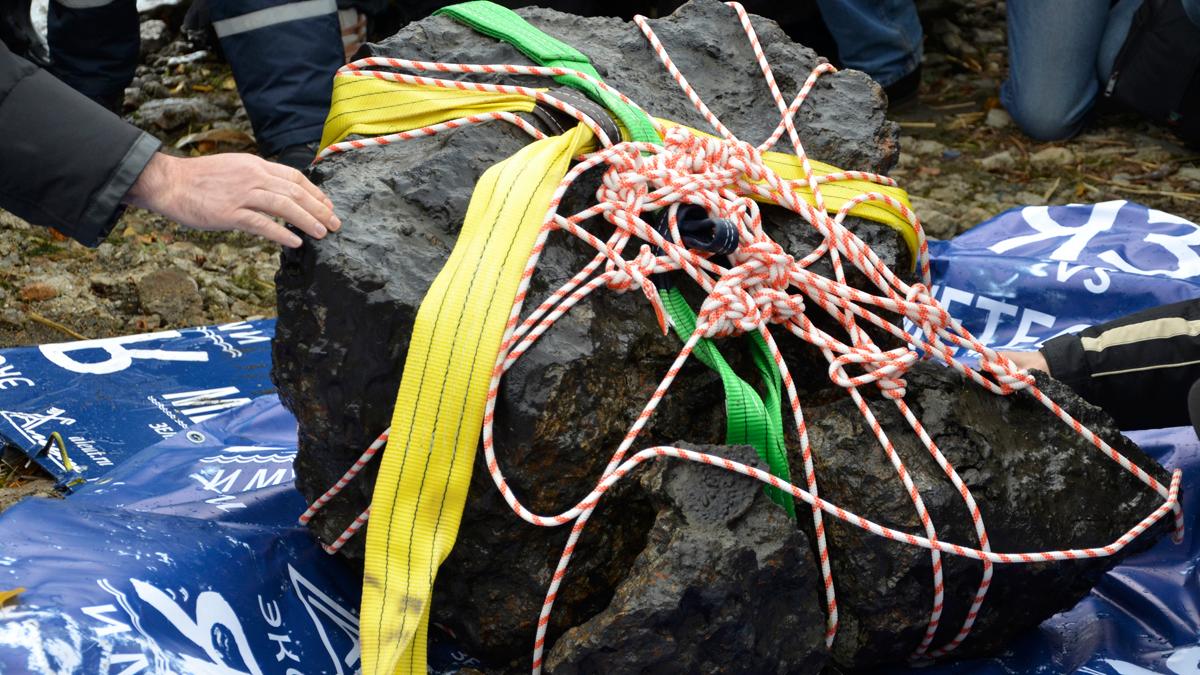Meteorite lifted from Russian lake weighs so much it breaks the scale
A piece of a meteorite, according to local authorities and scientists, is on display some 50 miles west of Chelyabinsk on the bank of the Chebarkul Lake, after it was lifted from the bottom.
On Feb. 15, a meteor streaked across the sky, exploded and crashed through two feet of ice into Chebarkul Lake in Russia.
But now, scientists finally have a massive hunk of it to study.
A team of researchers and divers used SONAR to locate the five-foot long chunk of meteorite, about the size of a compact refrigerator, embedded in sediment at the bottom of Chebarkul Lake.
The scientists from Chelyabinsk University then hauled it ashore and attemped to weigh it. BBC correspondent Oleg Boldyrev watched the team work on the meteor.
"I was standing a few meters from it. It was actually broken in three pieces, as they were lifting it," she said. "There's one very large chunk the size of a small refrigerator. They immediately hoisted it onto a scale trying to weigh it. Finally the scale gave up at 570 kilos, 1140 pounds."
But the meteorite broke the scale. Russian scientists will now study the specimen, estimated to weigh 1255 pounds, to confirm the rock did come from outer space.
The Chelyabinsk meteor was what's called a Near-Earth asteroid. Scientists estimate it entered Earth's atmosphere travelling faster than 41,000 mph. It created what was described as a dazzling light, brighter than the sun, and caused shadows during the morning in Chelyabinsk.
Locals said they felt intense heat from the fireball. Shortly after the Chelyabinsk meteor, journalist Boldyrev says he spoke with one man who said he was "deeply affected in a very strange way."
"He felt something big and horrible loomed over him," Boldyrev said. "We spoke to people who were hunting for a piece of the meteorite. They were very excited, saying something else happened, something beyond just the dreary political and economic news we get here in Russia."
But Boldyrev says the wonder has waned.
"Russians are bombarded with so much big news that sometimes they become jaded quite soon," he added. Boldyrev says efforts to develop tourism around the site have mostly fizzled.
Still the recovery was broadcast live on Russian TV, and at least one of the scientists was impressed with the operation saying "even if the meteorite they found today was twice as small, it would still be the largest stone meteorite ever found in Russia."
